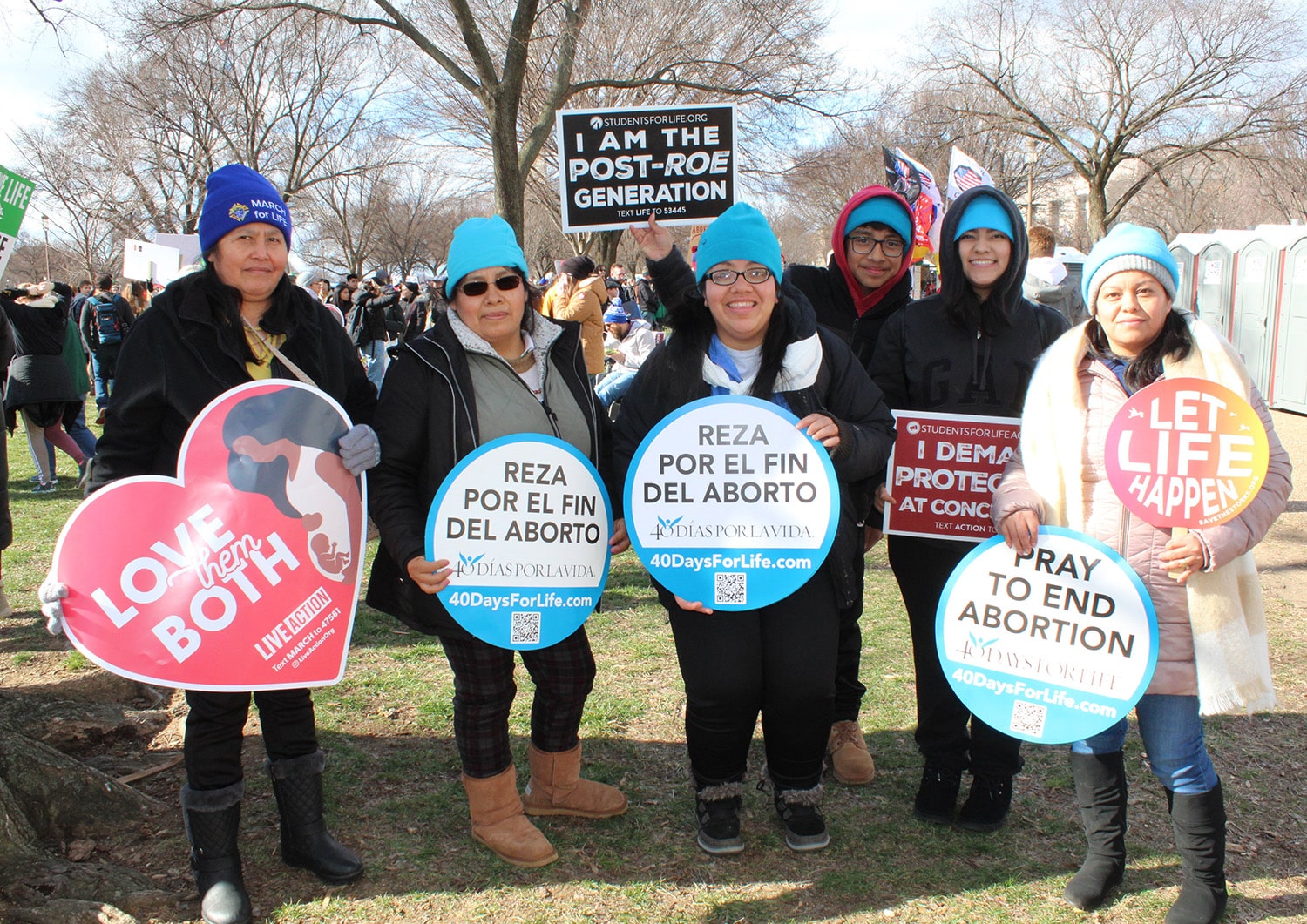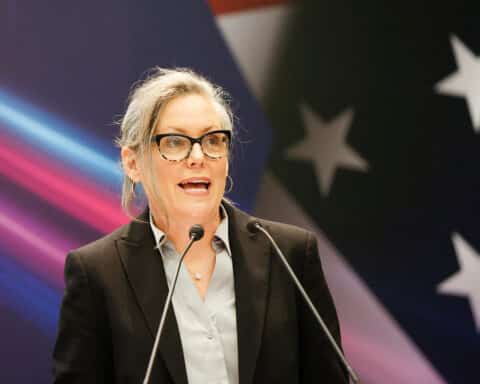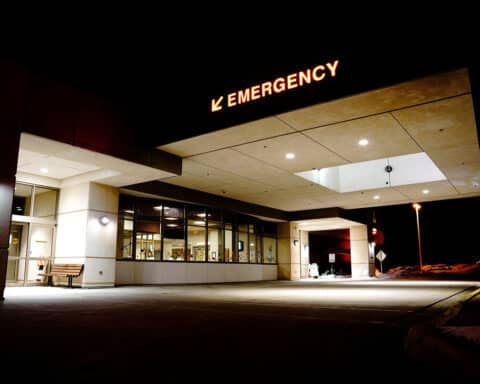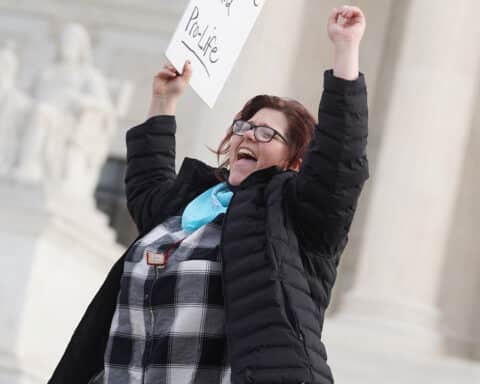The 51st annual National March for Life has chosen a theme for this year’s march that profoundly resonates with the Catholic notion of solidarity: “With Every Woman, For Every Child.” This powerful message underlines a commitment to support women through every step of their pregnancy and beyond. It testifies to the belief that no woman should navigate the challenges of motherhood in isolation. In a society where the narrative often paints abortion as the sole solution for women in challenging situations, this theme offers a compelling counternarrative. For Catholics, it resonates with our concrete responsibility to treat those who need our help with care and compassion.
Defending the safety net for moms who want to keep their babies
In the wake of Dobbs, those who would defend the unborn must double down on efforts to provide a robust network of support to women before, during and after pregnancy. This network includes the counseling, medical care, financial assistance and emotional support that make giving birth and raising a child seem like a real possibility. Crisis pregnancy centers have faced recent legal challenges throughout the U.S. Pennsylvania, for example, just severed its decades-long relationship with Real Alternatives, which provided resources for vulnerable mothers who wanted to keep their babies by funding crisis pregnancy centers, including Catholic Charities. Much of those tax dollars will now likely be diverted to Planned Parenthood.
Yet there have been victories. In Illinois, a federal court just struck down a law limiting what pro-life pregnancy resource centers could and could not tell clients.
Pregnancy care centers need to be not only defended legally but promoted. Planned Parenthood continues to dominate search engines, social media, and other sources of information for mothers in crisis. By telling the stories of women who have been lifted up by the pregnancy center safety net, Catholics can illuminate how these services have significantly affected the lives of many women and children. Their testimonies serve as beacons of hope, showcasing the positive outcomes of the pro-life movement’s compassionate approach.
Fighting the narrative that abortion is empowering
One of the most significant challenges to creating a culture of life is confronting the prevailing narrative that abortion is an empowering choice essential for protecting women’s freedom. Those who promote this perspective rely on fear, implying that restrictions on abortion lead to a grim future for women. We must address this narrative head-on.
The reality is that abortion often enables the exploitation of women. Recent studies have demonstrated a link between repeated abortions and human trafficking. Among women who are victims of trafficking, a disproportionate number have undergone abortions.
Even outside of trafficking, the challenges faced by women considering abortion are often immense. According to 2014 statistics from abortion providers, the majority of women who opted for abortion were in financially precarious situations. A staggering 75% were low-income, 60% were in their 20s, and 86% were unmarried. In short, they tended to lack the resources that would enable them to make a free decision.
Providing help at the local level
Yet resources exist to offer such women genuine choices and extensive support, not just during pregnancy but in the journey of motherhood that follows. We need to demonstrate, through both reason and faith, how choosing to give birth rather than have an abortion can offer hope to mothers, in some cases providing the spark that lights the way out of an abusive or exploitative situation. We also need to let women know that these resources exist, and that help is close by.
This must happen at a local level, and every Catholic parish in America can do it. By implementing the USCCB’s program “Walking with Moms in Need” our parishes can become centers of life, places that provide essential care for the needs of mothers and children. Walking with Moms in Need includes a comprehensive parish action guide, which parishioners can implement to make their parishes centers of welcome to women in need. According to the 2014 statistics mentioned above, 24% of women who have abortions identify as Catholic; it stands to reason that parishes could have reached some of them and provided resources that might have changed their minds. Of course, as Catholics, we practice charity to all, and parishes’ capacity to help mothers extends to the surrounding community.
Women’s strength in motherhood
Central to the pro-life message is the affirmation of women’s inherent strength and capability to embrace motherhood. Celebrating the brave mothers who have chosen life for their sons and daughters, and ensuring they have the support they need can inspire confidence and hope, reinforcing the idea that motherhood is not a journey of solitude but one of community and support.
A call to action
As Catholics, we must actively engage with, support and advertise the crisis pregnancy safety net in our communities. Establishing “Walking with Moms in Need” in your parish is critical to assist women and children with their concrete needs, while respecting the sanctity of life at every stage. As Catholics, we’re committed to upholding the dignity of life and support those who carry the gift of life. In this, we stand together — “with every woman, for every child” — in a journey of hope and unwavering support.





